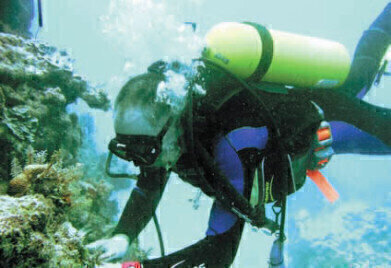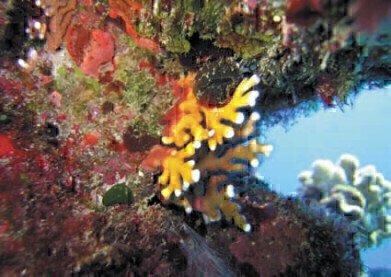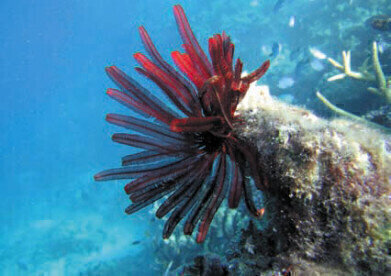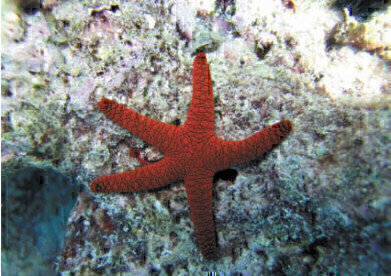News & Views
£1.6 Million Centre to Develop New Drugs from our Seas’ Natural Resources
Aug 23 2010
A new £1.6 million centre, which will harness the potential of natural resources from the depths of the world’s oceans to treat diseases such as cancer, officially opened its doors on June 15th to nearly one hundred academics and representatives from the pharmaceutical industry, from countries including the USA, Norway and Spain, for the Marine Biodiscovery Research and Applications symposium*.
The University of Aberdeen Marine Biodiscovery Centre is one of only three in Europe dedicated to the exploration of the natural resources from our seas, and one of very few in the world to bring together chemists and biologists to work together on the development of new pharmaceuticals.
Funded by the University’s College of Physical Sciences and Development Trust, with equipment and instruments part funded by the Biotechnology and Biological Sciences Research Council (BBSRC), the centre’s facilities include a library containing hundreds of pure compounds and thousands of extracts from organisms sourced from across the globe - including the Mariana Trench, the deepest part of the world’s oceans located in the western Pacific Ocean. The library – which has received financial support from the Scottish Universities Life Science Alliance – is available for use in biological research and drug discovery by the academic community and industry.
The equipment which will be used to analyse compounds from marine and other sources includes a magnet, 250,000 times stronger than the Earth’s magnetic field which will be used to interrogate the chemical structure of molecules, and a system which can identify how metals occur in living organisms and in the environment.
Examples of research being conducted at the centre include - The use of bacteria sourced from the world’s deepest oceans to find compounds to treat bacterial infections and parasitic diseases; obtaining fungi from Fijian coral reef organisms which produce compounds which may be used to treat cancer and inflammatory diseases; using analytical techniques to learn how mammals fight bacterial infections by starving the bacteria of the essential metals they need to thrive.
Professor Marcel Jaspars, Director of the Marine Biodiscovery Centre, said: “The greatest diversity of life on our planet can be found in the world’s seas in the form of marine organisms which live in a huge variety of habitats. Scientists at the University of Aberdeen have been conducting research exploring how the rich and diverse range of unique compounds which exist in these organisms can be used in the development of drugs and other novel biomedical products, for a number of years.
“The creation of the new Marine Biodiscovery Centre is allowing us to advance our research using state-of-the-art technologies, and work towards important new breakthroughs in this crucial area of medical discovery.”
*The symposium was sponsored by the Royal Society of Chemistry, Highlands and Islands Enterprise, Biosciences Knowledge Transfer Network, Thermo Scientific, Varian Inc, Syngenta, Aquapharm Biodiscovery and Glycomar.
For more information on the centre visit: www.abdn.ac.uk/~wpe018/research/biodiscovery
Pictures show Professor Marcel Jaspars diving off Australia at the Great barrier Reef and marine creatures photographed off the coast of Fiji. (pic credits: Professor M Jaspars)
Digital Edition
Lab Asia 31.2 April 2024
April 2024
In This Edition Chromatography Articles - Approaches to troubleshooting an SPE method for the analysis of oligonucleotides (pt i) - High-precision liquid flow processes demand full fluidic c...
View all digital editions
Events
May 05 2024 Seville, Spain
InformEx Zone at CPhl North America
May 07 2024 Pennsylvania, PA, USA
May 14 2024 Oklahoma City, OK, USA
May 15 2024 Birmingham, UK
May 21 2024 Lagos, Nigeria








.jpg)












